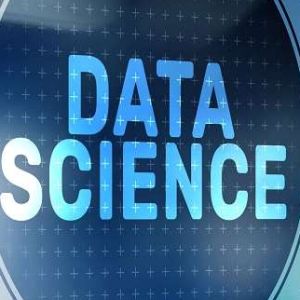Implementations of Data Science in the Automotive IndustryPosted by sairaj tamse on July 22nd, 2022 The automobile sector consistently maintains a significant rate of inventive triumphs while also facing a diverse range of problems. For manufacturers and auto dealerships alike, changing consumer tastes, technical advancements, economic conditions, globalization, and supply chain conditions cause competition, pressure, and volatility. It's critical for major players in the automobile sector to anticipate future changes in the market and have a workable plan to adjust, scale, and stay flexible in a changing environment. Autonomous vehicles, advanced production techniques, and elevated customer expectations are aspects of the changing automotive industry. The interaction between the key planners and data science becomes more significant and well-known as the car industry develops. Even though the automotive industry has traditionally adopted a more traditional approach to production, promotion, and sales, important stakeholders have embraced the expanding partnership between automakers and data science. How each stage of the automobile lifecycle makes use of data science:Data science uses scientific methods and procedures to learn from small and large data collections. An array of industries benefit from this expertise. Technology gives automakers the information they need to manage their operations more effectively and transparently, eliminating waste and improving earnings. Additionally, it equips them with the expertise to foresee supply-chain bottlenecks, comprehends their clients' needs better, and respond to international events that can negatively impact their sector. What does big data in the automotive sector actually mean?The collection of massive volumes of detailed information known as "big data" is used to produce and forecast trends and provide users with fresh and improved user experiences. Big data can enhance user connectivity and driver safety in the automotive sector. For instance, a connected vehicle collects data via its GPS, sensors, cameras, and electronic control units. Data scientists transmit and evaluate these real-time insights so manufacturers can make wise business decisions. This entails lowering operating costs, minimizing manufacturing faults, and improving resource usage. Additionally, it monitors the functionality of crucial parts like the brakes, battery, and engine to ensure that drivers and their passengers have access to dependable, secure, durable, and simple automobiles. Curious to know how exactly data science tchnqiues are used by auto industries? If you're a working professional in any field and need an exposure to data science, check out our data science course. Data science is used by automakers throughout the vehicle lifecycle, including:
Each of these fields needs a significant quantity of data and information to create and offer cars to end users. Here are a few examples of how the automotive industry uses data science.
Product development is the process of coming up with fresh ideas for a particular market or engineering a current product to address a set of client pain points better. For instance, before implementing at the manufacturing level, automakers employ data science to examine car model configurations and component dependability and carry out small-scale testing. For instance, to verify that the overall design is secure, automakers test out how different systems and components will alter the vehicle's dependability at various stages of the product development process. Additionally, they employ data science to assist in running simulations of how the multiple parts of the car design operate and examine their performance to see if the design is practical.
Data scientists work with engineers to review data from operations, finances, and suppliers to ensure each phase goes well and on time. For instance, a group of data scientists might concentrate on the performance of auto parts suppliers to ensure that they are situated in an economically viable area, that they can consistently deliver parts on time, and that they charge fair prices in accordance with industry standards.
The difficulties and objectives related to sustainability are now more known to consumers and the automotive industry. Automakers employ data science to optimize fuel and emissions efficiency in line with government objectives while maintaining their sales and profit targets. For instance, a car company can use data scientists to maximize the proportion of electric vehicles in its product range and reduce the amount of fuel that their vans and pickup trucks use. Additionally, fuel efficiency aids automakers in obtaining government recognition for their sustainability initiatives.
Automobile manufacturers estimate consumer behavior and collect customer data using data science. Anticipating future customer expectations, enhancing product quality, and customizing the shopping experience, enhance the customer journey. How is the auto industry developing?Automakers are using data science in three crucial areas to stay competitive in the sector:
Automobile manufacturers regularly create new product lines with improved features and new models. The industry's major players must consistently and swiftly produce high-quality automobiles that surpass shifting consumer demands and take on issues like maximizing performance and addressing issues like efficiency, fuel consumption, cost, and cost.
Automakers must be robust with the possibility of operations and the supply chain being challenged by shifting global circumstances. Manufacturers and dealerships that can scale and remain flexible in a competitive market can boost earnings and quickly address unforeseen obstacles.
Customer engagement can be improved to increase loyalty. Automakers are putting more and more effort into creating a simplified process that enables them to interact with customers across a variety of channels and touchpoints to improve customer experiences and services. Conclusion:Clearly, large important companies in the automotive industry are changing every facet of how they conduct business in response to changes in governmental regulations, the economic climate, and consumer preferences. Hope this article was helpful for your knowledge. If you are fond of cars or love to work in the automotive industry and wish to put your expertise to use, data science can help you make a lucrative career. Visit Learnbay’s data science course in Bangalore and explore various data science tools and techniques used in the industry. Like it? Share it!More by this author |


